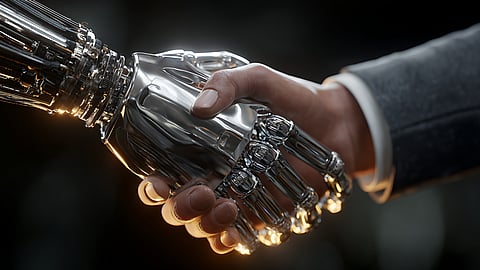
- News
- Campus
- Exam
- Podcast
- Web Stories
- Do You Know
- Path Finders - UG Programs
- Videos
- Élitscape

Google’s senior director of product, Ryan J Salva, has a stark warning for software engineers. “There’s no more hiding from AI if you’re a software engineer,” he added.
Speaking to Business Insider, Salva, who leads product management at Google, said artificial intelligence is now central to software development. AI is increasingly being used to generate and review code, write documentation, and even create test cases, fundamentally changing the role of software engineers.
“I expect a lot more people not just to participate in software development, but to get closer to the actual deployment of the software itself,” Salva added.
AI adoption surges
Salva’s comments coincide with a Google Cloud report released earlier this week, which found that AI adoption among software professionals has reached 90 per cent worldwide, a 14 per cent increase from last year.
The report is based on a survey of 5,000 technology workers and more than 100 hours of interviews. On average, developers now spend about two hours each day using AI tools in their workflow.
Nathen Harvey, head of Google’s DevOps Research and Assessment team, noted the scale of adoption, “It’s almost to the point where we could have asked these technologists, ‘Are you using a computer at work?’”
Evolving role of software engineers
Salva explained that while coding remains essential, engineers are now spending less time writing raw code and more time on product design, architecture, and problem-solving. AI tools can rapidly turn specifications, traditionally handled by product managers, into prototypes, shortening the gap between planning and building.
“The end product was never just code,” Salva said, noting that AI has lowered barriers that once required fluency in languages like Java or Python. This enables more professionals, even those outside core engineering roles, to participate in software creation and deployment.
However, Salva stressed that understanding coding languages remains critical.
“You are going to be entirely unsuccessful if you cannot read the language, at the very least. There are dozens, if not hundreds, of programming languages out there. One needs to be able to read the book,” he said.
